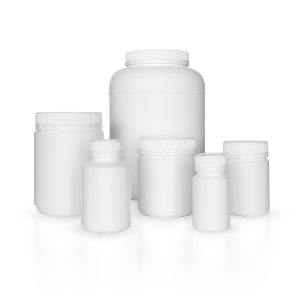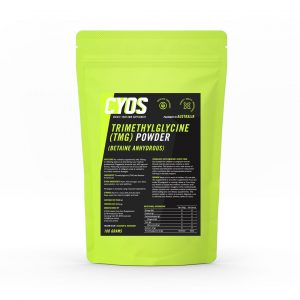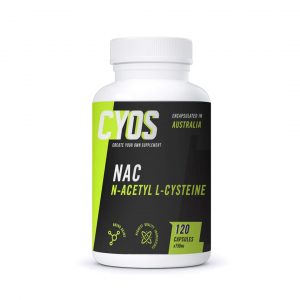


Brain Booster
J J 02 Jun 2020
Why are B Vitamins so important?
Share
B Vitamins play an important role in the body. If your body isn’t receiving adequate amounts from your diet it is important to supplement to avoid getting a deficiency. Without the B Vitamin group, our bodies would lack energy because the job of the B Vitamins is to help the body use the fuel from carbohydrates, fat and protein.
There are eight B vitamins — collectively called B complex vitamins. They are thiamine (B1), riboflavin (B2), niacin (B3), pantothenic acid (B5), pyridoxine (B6), biotin (B7), folate (B9) and cobalamin (B12). The B Vitamins work together and are particularly prevalent in aspects of brain function, including energy production, DNA/RNA synthesis/repair, genomic and non-genomic methylation, and the synthesis of numerous neurochemicals and signaling molecules.
At CYOS we offer a Vitamin B blend, Niacin (B3), Pantothenic Acid (B5), Vitamin B6 and Biotin (B7)
We will look into each of the B Vitamins and why they are important.
Thiamine (B1)
Why is Thiamine (B1) important?
Thiamine is an important B Vitamin that assists in energy metabolism, it helps the body’s cells turn carbohydrates into energy. It creates neurotransmitters in the brain and plays a key role in nerve, muscle and heart function. It also produces fatty acids.
Symptoms of a Thiamine deficiency:
- General fatigue/weakness
- Irritability
- Emotional Disturbances
- Confusion
- Disturbed sleep
- Memory Loss
- Can result in the disease “Beri-Beri” – nerve damage, cardiovascular dysfunction leading to pain, swelling, weakness and pain in the limbs, shortness of breath
Thiamine in food:
Thiamine occurs in small quantities of many nutritious foods, some of those are:
- Yeasts
- Vegemite
- Marmite
- Wholegrain
- Green Vegetables
- Potatoes
- Pasta
- Liver
- Pork
- Egg
People at risk of a Thiamine deficiency:
- Those with alcohol dependence
Riboflavin (B2)
Why is Riboflavin (B2) so important?
Riboflavin or B2 is a water soluble vitamin which is found in some foods. It is important because it releases energy from the nutrients in all body cells. It plays and important role in antioxidant pathways throughout the body and also helps the body break down fats, drugs and steroid hormones.
Symptoms of a Riboflavin deficiency:
- A deficiency often accompanies other nutrient deficiencies
- Inflammation in the membranes of the mouth, skin, eyes and GI tract.
- Hair loss
- Fatigue
- Personality change
- Brain dysfunction
- Red Itchy Eyes
Riboflavin in food:
- Milk and Milk Products
- Wholegrains
- Fortified Breads and Cereals
- Dark green leafy vegetables
- Nutritional yeast
People at risk of a Riboflavin deficiency:
- Those following a vegan diet
- Women who are pregnant or lactating
Niacin (B3)
Why is Niacin (B3) so important?
Niacin is a super important B Vitamin – every part of your body needs it. It helps the digestive system, skin and nervous system. Niacin helps the body break down carbohydrates, fats and proteins into energy and helps with the metabolism of glucose, fat and alcohol.
Symptoms of a Niacin deficiency:
- Depression & Anxiety
- Memory Loss
- Paranoia/Psychotic symptoms
- Aggression
- Pellagra – A condition with symptoms such as: dermatitis, alopecia, muscle weakness, twitching/burning in the extremities, altered gait, diarrhoea.
Niacin in food:
Niacin can also be made by the body from the amino acid tryptophan. Dietary tryptophan could meet about half the daily niacin needs for most people and the rest can be done by diet. It is found in foods such as:
- Meat & Poultry
- Legumes
- Whole grains
- Mushrooms
- Potatoes
- Tomatoes
People at risk of Niacin deficiency:
- Those with anorexia
- AIDS
- Inflammatory Bowel Disease
- Malnutrition

Pantothenic Acid (B5)
Why is Pantothenic acid so important?
Pantothenic acid is available in plant and animal sources of food and is a very important vitamin for the human body. It is involved in more than 100 different steps in the synthesis of lipids, neurotransmitters, steroid hormones and haemoglobin. It is necessary for the body to create new coenzymes, proteins and fats. Pantothenic acid helps metabolise the food we eat and turn it into energy.
Symptoms of a Pantothenic acid deficiency:
- Numbness and burning of the hands and feet
- Dermatitis
- Diarrhea
- Lack of Appetite
- Restlessness
Pantothenic Acid found in food:
- Beef
- Poultry
- Whole Grains
- Potatoes
- Tomatoes
Vitamin B6
Why is Vitamin B6 so important?
Vitamin B6 is an important nutrient for the human body as it helps the body make non-essential amino acids. It helps with brain development, immune function and it breaks down carbohydrates and fats.
Symptoms of a deficiency:
- Depression & Confusion
- More advanced deficiency – Brain wave patterns and convulsions
- Anemia
- Irritability
- Impaired alertness
- Cognitive decline
People at risk of a Vitamin B6 deficiency:
- Those who have kidney disease
- Celiac Disease
- Crohn’s Disease
- Those who consume a lot of alcohol
Biotin (B7)
Why is Biotin (B7) so important?
Biotin B7 is important for the body as it breaks down certain fatty acids and amino acids. Some people believe Niacin may help with psoriasis [2] nail health, hair health and some skin conditions. It plays an important role in metabolism as a coenzyme that carries activated carbon dioxide.
Symptoms of a Biotin deficiency:
- Skin rash
- Hair loss
- Neurological impairment
Foods with Biotin:
- Eggs
- Liver
- Pork
- Leafy Vegetables
People at risk of a Biotin deficiency:
- People who consume a lot of alcohol
- Women who are pregnant or lactating
- People with Metabolic disorder
Folate
Why is Folate so important?
Adequate Folate levels are extremely important in pregnancy, adolescence and infancy. Folate helps make DNA and other genetic material and is needed to make red and white blood cells in the bone marrow. Folic Acid is the term used for the synthetic form of folate and is used exclusively in dietary supplements and food fortification. Folate also converts carbohydrates into energy.
Symptoms of a Folate deficiency:
- Weakness
- Heart Palpitations
- Pale skin
- Irritability
- Metabolic abnormalities
- GI tract damage
Folate in food:
- Fortified in grain products
- Leafy green vegetables
- Legumes
- Fruits and vegetables
People at risk of folate deficiency:
- People with Celiac disease
- Conditions that impair nutrient absorption
Vitamin B12
Why is Vitamin B12 so important
B12 is closely related to folate and is required to convert folate to its active form. B12 helps prevent a type of anemia called megaloblastic anemia that makes people tired and weak. It’s needed to create new blood cells and for fat and protein metabolism. It’s also important in assisting with brain and neurological function. If you’re following a vegetarian or vegan diet it’s important to get your levels tested regularly for b12 and to supplement as b12 is only found in animal products.
Symptoms of a B12 deficiency:
- Most B12 deficiencies reflect inadequate absorption, not poor intake.
- Anemia
- Impairs memory
- Impairs spatial ability
- Short term memory loss
- Advanced deficiency can see creeping paralysis that begins at the hands and feet and works inwards and up the spine.
B12 in food sources:
- Meat
- Fish
- Animal Products
- People who do not eat animal products will need to supplement with B12.
People at risk of deficiency:
- Elderly people
- Those following a diet without animal products
- People with Celiac disease
- People with Crohn’s disease
Summary
As we can see by evaluating all of the B Vitamins there are some more than others who are more likely to suffer from a Vitamin B deficiency. Those who are pregnant or lactating, who suffer from a condition where they can’t efficiently absorb nutrients and those following a vegan or vegetarian diet. It is important to stay on top of your Vitamin B levels and if you’re feeling any of the above symptoms go to your GP and get checked over. Supplementation can be very beneficial for some people.
References:
[1] – https://www.ncbi.nlm.nih.gov/pmc/articles/PMC4772032/
[2] – https://www.medicalnewstoday.com/articles/324206
[3] – https://www.medicalnewstoday.com/articles/325292#riboflavin
CYOS blog content is for informational and educational purposes only, and should not be considered medical advice, diagnosis or treatment recommendations. Always consult with your doctor or medical professional before using any dietary supplements or if you suspect you have any medical concerns or issues.
Share
SHOP OUR PRE-MADE CAPSULES RANGE
100% Pure • Encapsulated in Australia • Vegetarian Capsules • No Fillers • No Additives • No Binders • No Anti Caking Agents • Allergen Free • No Preservatives • Non GMO
Our best sellers
 Search Products
Search Products
 All Products A-Z
All Products A-Z
 Pre-Made Capsules
Pre-Made Capsules
 Additives
Additives
 Amino Acids
Amino Acids
 Anti-Oxidants
Anti-Oxidants
 Beauty
Beauty
 Bioactive Compounds
Bioactive Compounds
 Bulk Items
Bulk Items
 Empty Capsules
Empty Capsules
 Fats & Oils
Fats & Oils
 Fibers
Fibers
 Herbal Extracts
Herbal Extracts
 Joints
Joints







 Mushroom Extracts
Mushroom Extracts Nootropics
Nootropics Packaging
Packaging Probiotics & Digestion
Probiotics & Digestion Proteins
Proteins Sleep
Sleep Stimulants
Stimulants Super Blends
Super Blends Super Foods
Super Foods Tools
Tools Vitamins & Minerals
Vitamins & Minerals Weight
Weight Workout
Workout